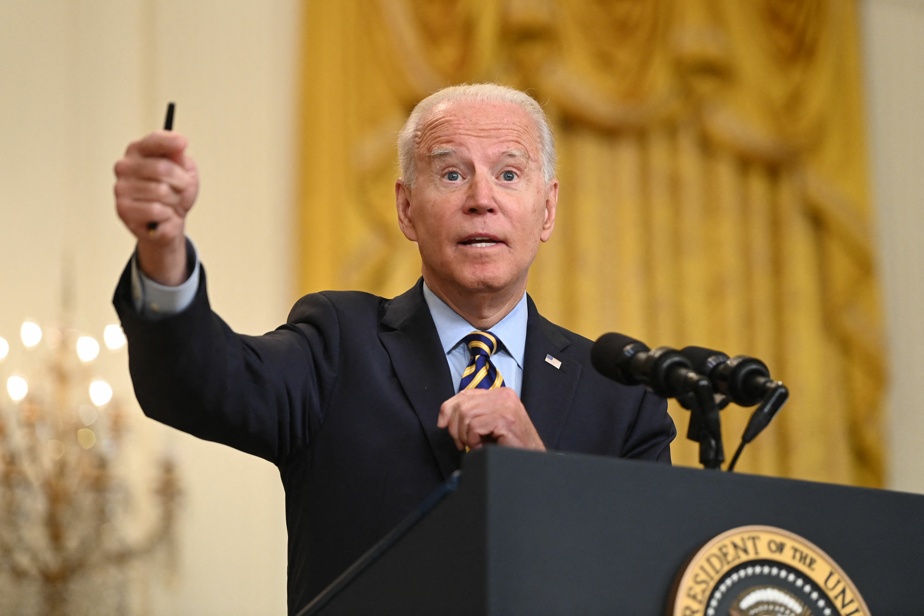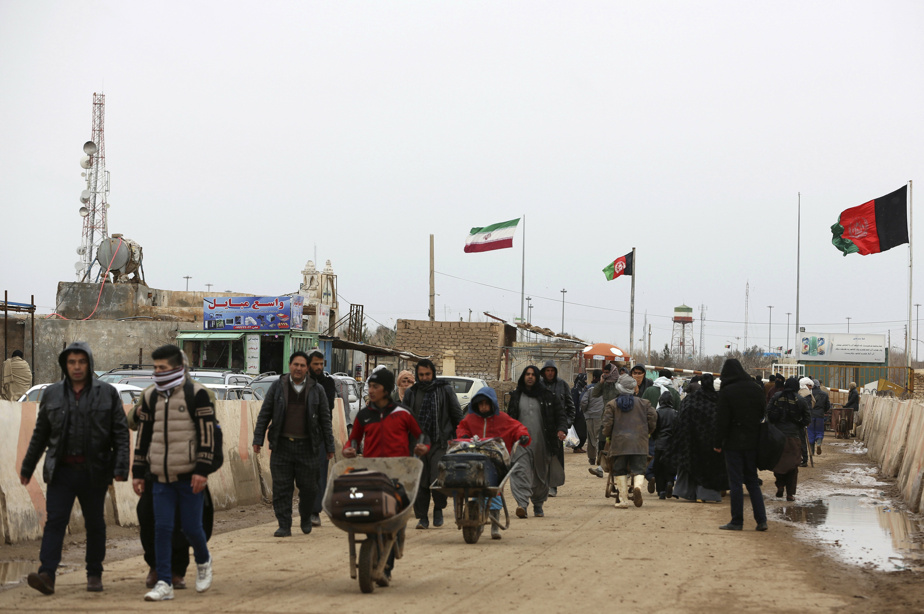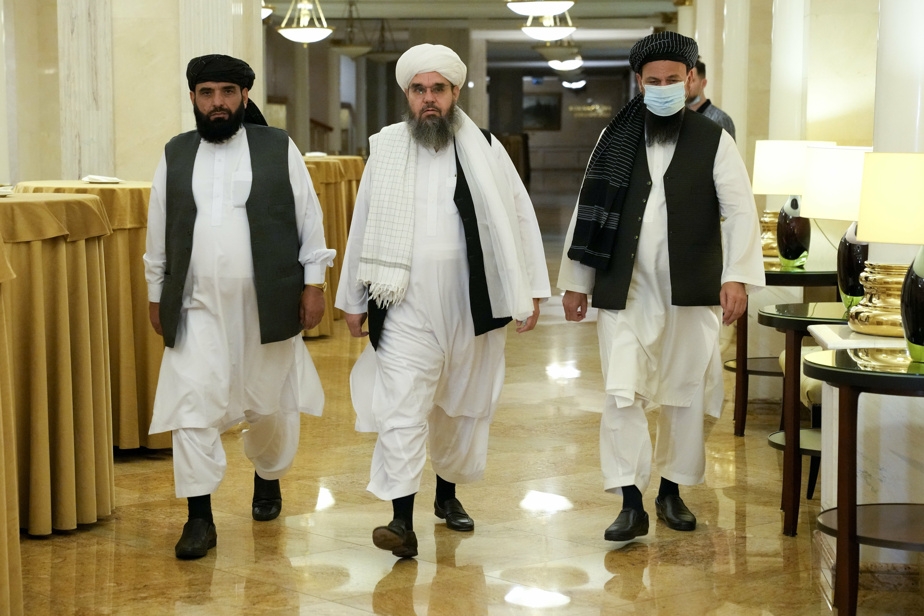(Kabul) The Taliban announced, on Friday, that it now controls 85% of the territory of Afghanistan, including two important border sites with Iran and Turkmenistan, after two months of a comprehensive attack against the Kabul forces in favor of the withdrawal of the US army, almost completely.
During a press conference in Moscow, Shahabuddin Dilawar, a representative of the Taliban, confirmed that about 250 districts out of 398 districts in the country are now in the hands of the rebels, but these allegations could not be confirmed by an independent source.
If they (the Taliban) control such a large percentage of the territory, why do their leaders live in Pakistan and cannot come to Afghanistan? Fouad Aman, the official spokesman for the Ministry of Defense, replied. Why send their dead and wounded fighters to Pakistan? ”
Now deprived of critical US air support, Afghan forces have lost a lot of ground, but on Friday confirmed they had driven the Taliban out of Qala-i-Naw (Northwest), the first provincial capital – the capital of Badghis – to be attacked by the insurgents since they began their offensive.
Later that day, Taliban fighters attacked a prison on the outskirts of Kandahar, the big city in southern Afghanistan, their former stronghold.
“The fighting continues and we have deployed reinforcements, including special forces, to clear the area,” said Kandahar police spokesman Jamal Nasir Barakzai.
The end of the US withdrawal
Pentagon chief Lloyd Austin on Friday called for “international pressure” to reach a “political agreement to end this conflict and give the Afghan people the government they want and deserve.”
Lloyd Austin, without naming a specific country, noted that “the entire world (could) help by continuing this pressure”
The day before, US President Joe Biden announced that the US military mission in Afghanistan would end on August 31, nearly 20 years after it began.

Photo by Saul Loeb, AFP
US President Joe Biden
He considered that it is not “inevitable” that this country falls into the hands of the Taliban, considering that the Afghan authorities have the “ability” to ensure the continuity of the government.
But the Taliban now controls an arc of territory stretching from the Iranian border in the west to the border with China in the northeast.
On Friday, they said that they had captured two main border posts, the first of which was the Islam Qala post, the most important crossing with Iran, and then the Turgundy crossing with Turkmenistan, both of which are located in the Afghan province of Herat (west).

Rahma Gul’s photo, archive press
Afghans at the border point with Iran, in Islam Qala, February 2019
According to Interior Ministry spokesman Tariq Arian, Afghan forces are now trying to regain control of them.
Through Islam, Qal’at passes most of the legitimate trade between Afghanistan and Iran.
Last month, the rebels had already captured Sher Khan Bandar, the main border crossing between Afghanistan and Tajikistan.
A thousand Afghan soldiers had taken refuge in Tajikistan after fierce fighting.
“Older will be better”
Russian diplomatic spokeswoman Maria Zakharova said on Friday during a press conference that the Taliban “currently controls about two-thirds of the border with Tajikistan.”
“We call on the parties involved in the Afghan conflict to exercise restraint and prevent the spread of tensions outside the country’s borders,” she said while a Taliban delegation was in Moscow.
Afghan forces have lost a lot of ground, especially in rural areas, and the Taliban are besieging major cities like Herat.
Taliban spokesman Suhail Shaheen told AFP that the insurgents wanted a “negotiated deal” and “do not believe in a monopoly of power.” But the rebels show little interest in negotiations with the now stalled government.
The Taliban also welcomed Mr. Biden’s announcement.
Shaheen replied: “The better that is, with the departure of American and foreign forces, the better.”
On Thursday, Afghan President Ashraf Ghani admitted that the country is going through “one of the most complex phases of the transition.”
The political class also appears to be in trouble, as evidenced by an audio file leaked on social media on Friday. Vice President Amrullah Saleh can be heard threatening to kill a member of Parliament after he was accused of encouraging Afghan forces to surrender to the Taliban during the offensive on Badghis province.
Other political actors are also making themselves heard, raising fears of a disintegration of the pro-government camp.
Ismail Khan, a prominent warlord whose militia helped US forces overthrow the Taliban in 2001, vowed to take up arms against the Taliban.
“We will go to the front lines soon, and with God’s help, we will change the rules of the game,” he said at a press conference in Herat.

“Extreme twitteraholic. Passionate travel nerd. Hardcore zombie trailblazer. Web fanatic. Evil bacon geek.”

